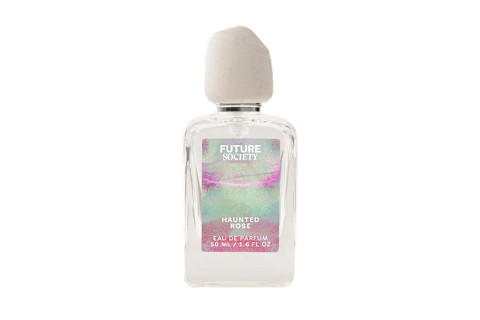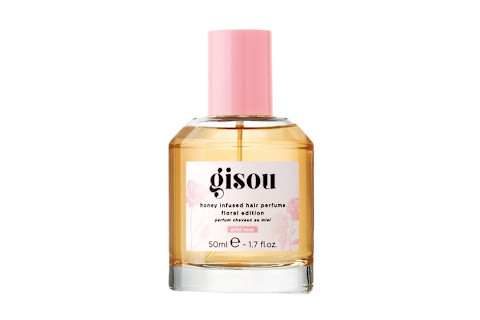It's True: Smelling Flowers Can Make You Smarter & Happier

The winter garden embodies resilience. Only the bravest of buds unfurl from the blanket of frosty earth; only the strongest of petals stay put amid gusty winds. So when you catch a whisper of floral fragrance out and about, you may feel a bit fearless yourself—it’s hard to stay down when you realize that somewhere, somehow, a flower blooms.
It all sounds nice and, well, flowery, but the science is also on our side: Flowers—namely, their sweet aromas—have the ability to make us feel safe, warm, and clear-headed. Take a peek at their cognitive longevity benefits, and you’ll want to bathe yourself in floral scents for the rest of the season.
The science of scent memories
The link between fragrance and memory is well-known. A whiff of vanilla might conjure afternoons spent with your grandmother, or a fresh, water lily aroma may transport you straight to the beach. These odor-evoked memories have been shown1 to uplift mood, reduce stress, and even target areas of the brain associated with learning.
"Your olfactory nerve is the only cranial nerve in direct contact with your external environment," physician and natural skin care expert Sarah Villafranco, M.D., once shared with mbg. "Nerve endings inside your nose are in contact with the air you breathe, and when they connect with scent molecules, they activate express messages to primal parts of your brain that control things like emotion, memory, and pleasure."
Essentially, your olfactory system can quickly indicate whether an environment is safe or not, and certain scents contain chemical components that lull your senses and elicit relaxation2.
And when your mind feels safe, it frees up space for learning and concentration: “Psychological safety helps us to learn and retain memories,” agrees neuroscientist Tara Swart Bieber, M.D., Ph.D.
Florals take it even further
Floral scents, in particular, have some fascinating brain health benefits. Take this 2022 study3, which discovered differences in adults’ attention levels and emotional states during a flower arranging session. It’s the olfactory stimulation from the cut flower fragrances, researchers theorize, that stimulate brain wave activity in the prefrontal cortex.
Or consider this study from the American Society for Horticultural Science, which found exposures to the floral fragrance (specifically Japanese plum blossom) activate the sympathetic nervous system and the brain regions related to movement, speech, and memory.
According to Swart, it’s their connection to nature that gives florals their brain-boosting power. “Florals are strongly reminiscent of being in nature,” she says, and spending time in nature is linked to better longevity and overall health. A floral scent can evoke memories of nature walks and greenspace, which can promote that brain activity without even stepping foot outdoors.
This is especially pertinent right now, when many people’s motivations tend to dip in the middle of winter. Swart suggests exposing yourself to floral fragrances could help offset those seasonal affective issues, in addition to getting enough sunlight and vitamin D. “It could stimulate the memories of spring and summer and remind us that the cycles of nature are important,” she notes.
Licensed neuropsychologist and director of Comprehend the Mind, Sanam Hafeez, Psy.D., seconds the theory, noting that “the association between floral scents and nature may help create a sense of connection to the outdoors, which can be particularly beneficial when spending less time outside due to colder weather.”
Of course, this doesn’t mean you should hole up indoors for the rest of the frigid season (please try to get some fresh air if you can!), but for some, seasonal affective disorder isn’t just about the sun—and the scent memories of blooming flowers can have a significant impact.
“The visual and sensory stimulation provided by greenery and florals, even in the form of indoor plants or floral fragrances, could help alleviate symptoms of seasonal depression by providing a sense of nature and beauty,” Hafeez adds. Flowers are aesthetically pleasing, after all, and beholding beautiful things has been linked to mental health and longevity (really! It’s called neuroaesthetics4, Swart tells me).
Quick anecdote: If you asked me about my fragrance preferences last year (or even a few months ago), I wouldn’t consider myself a florals fan. I’m more of a musk, sandalwood, amber type of gal, and in the winter, I lean into everything snow and pine.
Though lately, especially on days I wake up to a hazy gray sky, I’m gravitating towards perfumes that smell like a sunny garden. I’ve had DedCool’s Sunlit Blooms and PHLUR’s Mood Ring—both warm, sweet florals—on rotation since they each dropped in December.
Carina Chaz, founder of Dedcool, tells me she wanted to rethink and subvert what a winter scent “should” be. “It’s a reassuring, happy scent that lifts your mood when you need it most, like during these cold, dark months,” she says. And like its name suggests, PHLUR markets Mood Ring as a “vibrant mood-enhancing fragrance,” with a launch date in the dead of winter.
Coincidence? I think not.
These floral scents tickle your brain
DedCool Sunlit Blooms

PHLUR Mood Ring

Future Society Haunted Rose

Noteworthy Scents n,249

Gisou Wild Rose Hair Perfume


